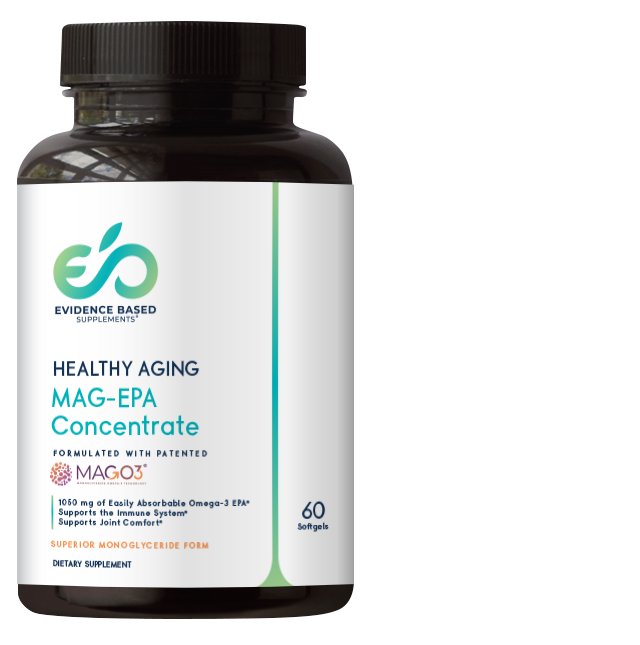Apoptosis and Aging
Most people think of aging as a normal and inevitable part of life. While it is true that our cells and tissues do age with time, there are things we can do to slow the aging process, promote longevity, and even extend lifespan. One such thing is facilitating a process called apoptosis (1), which, when functioning seamlessly, promotes healthy aging and offers protection against the onset of age-related diseases. Let’s look at what apoptosis is, its functions inside the body, and how to support it.
What is Apoptosis?
The word apoptosis is derived from the Latin meaning "to fall off," a form of programmed cell death that the body uses to eliminate old, damaged, or faulty cells that, if left to accumulate, can result in uncontrolled cell division and, ultimately, disease. Apoptosis (2) is a tightly regulated process that triggers cells to self-destruct without needing external stimuli. Apoptosis is essential to maintaining human life and critical to growth, development, and cell turnover. As such, apoptosis is not merely important during the aging process but is also key to maintaining cellular homeostasis (balance) throughout life. A perfect example of developmental apoptosis (3) can be observed in utero during embryonic evolution, where the death of specific cells results in the creation of non-webbed digits (fingers).
While apoptosis works seamlessly in the young and healthy, our bodies are no longer as effective at removing dysfunctional cells as we age. Unsurprisingly, dysregulation of apoptosis can cause diseases like cancer, autoimmune conditions, and neurodegenerative disorders, including Alzheimer’s disease, and can accelerate aging. As such, finding ways to trigger, modulate, or stimulate apoptosis offers immense therapeutic and longevity potential.
Mechanism Of Action
The mechanism that allows cells to self-destruct (to apoptose) is only possible when an appropriate trigger stimulates it. Indeed, both the intrinsic and extrinsic pathways of apoptosis use a specific class of proteolytic enzymes (enzymes that break down protein) to trigger apoptosis. Unfortunately, these can be in short supply due to the aging process. In fact, in disease states, most notably in cancer, apoptosis is inhibited both by an overabundance of anti-apoptotic proteins and a lack of pro-apoptotic proteins.
In addition, mitochondrial lipid metabolism is intimately involved in regulating most of the body's cellular processes, including cell growth, proliferation, differentiation, survival, inflammation, and, you guessed it, apoptosis. In fact, research tells us that deregulated lipid metabolism is a common feature of cancer cells and causes the mitochondria to be resistant to apoptosis. Moreover, apoptosis dysregulation can accelerate the aging process and cause resistance to the most common anticancer therapy, chemotherapy.
The Importance Of Apoptosis
As seen, apoptosis is required for normal cell turnover, tissue homeostasis (4), and general health maintenance throughout life. One of the hallmarks of accelerated aging and the onset of disease is the accumulation of old, damaged, or faulty senescent cells, which can no longer replicate but refuse to die through apoptosis as a result of experiencing inherent or environmental stresses. These so-called “zombie cells (5)” remain biologically active and continue to secrete inflammatory compounds into the body, contributing to chronic systemic inflammation.
A chronic inflammatory status is a common feature of aging. It has been coined “inflammaging (6)," a status representing a significant risk factor for age-associated illnesses and mortality in the elderly. Unsurprisingly, a disruption in apoptosis is associated with aging of the body’s cells and tissues, including accelerated skin aging, wrinkle formation, greying hair, decreased wound healing, and the onset of age-related conditions like heart disease, diabetes, dementia, osteoarthritis, chronic obstructive pulmonary disease, and cancer.
Facilitating Apoptosis with MAG-O3™
Monoglyceride Omega-3 fatty acids eicosapentaenoic acid (EPA) and docosahexaenoic acid (DHA) are dietary fatty acids that offer a range of scientifically-demonstrated health benefits. Most notably, as it pertains to healthy longevity, monoglyceride omega-3 fatty acids have been studied for their ability to stimulate apoptosis, selectively destroy old, damaged, and faulty cells, and protect against diseases associated with the aging process, including cancer (7).
Research has shown that omega-3 fatty acids can inhibit the growth of cancer cells (8) by inducing apoptosis. EPA, in particular, has been shown to suppress cancer cell growth (9) in drug-resistant cells by facilitating apoptosis in a time- and concentration-dependent manner. Moreover, being that disturbed mitochondrial lipid composition is a hallmark of many age-related conditions (10), including Alzheimer’s and Parkinson’s disease, omega-3 fatty acid supplementation may also offer protection against disease onset and help slow disease progression.
MAG-O3 MAG-EPA, a novel patented monoglyceride form of omega-3-rich fish oils, multiplies the anti-aging and health-promoting benefits thanks to its optimized bioavailability and absorption. MAG-O3 has been studied extensively in numerous research areas, most notably in healthy aging. It has been shown to have the potential to slow the aging process and increase the median lifespan (11).
Considering that aging is a complex process resulting from a combination of environmental, genetic, and epigenetic factors, senolytic therapies that can selectively promote the destruction of senescent cells, that threaten health, and promote inflammaging, have the potential to redefine aging as we know it and help guard against age-related diseases including cancer.
Click here to learn more about MAG-O3 and EB Supplements™ products.

Understanding Apoptosis in Aging: The Role of MAG-O3 Monoglyceride Omega-3